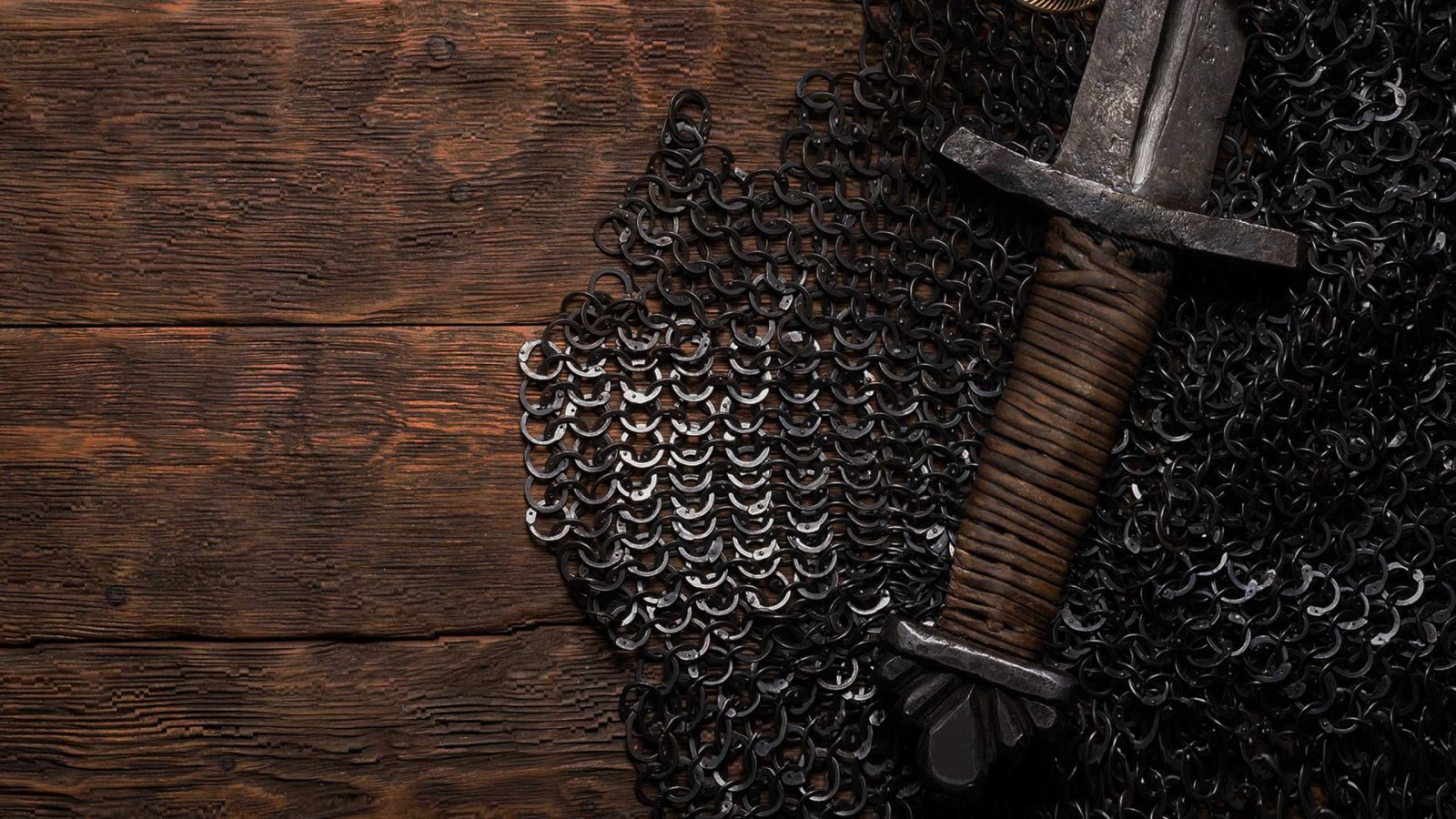

In Islām, both parents have rights, some of which might be shared between them, some of which may not. Although no specific authentic text may exist proving that one parent has the right to name the child over the other, numerous evidence suggests that the father possesses this right. From them is the following:
1.
[A] Allāh’s statement:
ادْعُوهُمْ لِآبَائِهِمْ هُوَ أَقْسَطُ عِندَ اللَّهِ
“Call them after their fathers. This is more just before Allāh.”
[Al-Aḥzāb, 33:5]
[B] The Messenger’s (ﷺ) statement: “Whoever knowingly claims to be the son of anyone other than his real father has disbelieved.”1
[C] The Messenger’s (ﷺ) statement: “A flag will be hoisted for a treacherous man on the Day of Judgement. It will then be announced: ‘This is the treachery of Fulān son of Fulān.’”2
These texts suggest that the father has the right to name the child because the child ascribes to his father’s lineage. Ibn al-Qayyim (رحمه الله) stated:
The father has the right to name the child because the child ascribes to his father, so the child is called Fulān son of Fulān.
Allāh said:
ادْعُوهُمْ لِآبَائِهِمْ هُوَ أَقْسَطُ عِندَ اللَّهِ
“Call them after their fathers. This is more just before Allāh.”
[Al-Aḥzāb, 33:5]3
Therefore, the Prophet’s (ﷺ) statement: “You will be summoned on the Day of Resurrection by your names and by your father’s names, so give yourselves good names,”4 although weak, has a correct meaning. As for His statement: “The people will be summoned on the Day of Resurrection by their mother’s names so as to conceal their identity,”5 then it is fabricated.
2. The Prophet’s (ﷺ) statement: “I had a child, so I named him after my father Ibrāhīm.”6
This Ḥadīth also suggests that the father has the right to name the child, since the Prophet (ﷺ) was the one to name the child, not his wife.
3. The father is responsible for educating the child, providing for him, and performing his ʿaqīqah, so the father also has the responsibility to name the child. Ibn al-Qayyim (رحمه الله) said: “Naming the child is just like educating him and performing his ʿaqīqah, and the father is responsible for these things, not the mother.”3
Therefore, a father has the right to name the child. Consequently, Ibn al-Qayyim (رحمه الله) mentioned: “The father has the right to name the child, not the mother. If they differ between themselves over the child’s name, the father chooses the name. The scholars agree unanimously about this.”3
As for the Prophet’s (ﷺ) clear statement: “It is the child’s right that the father gives him a good name,”7 then it is fabricated. However, the aforementioned evidence suggests this.
Even though the father has the right to name the child, the father should still try to consult his wife or at least choose a name that she also likes, since this will eliminate conflict between them. Allāh said:
وَعَاشِرُوهُنَّ بِالْمَعْرُوفِ
“Live cordially with them.”
[Al-Nisāʾ, 4:19]
Shaykh al-ʿUthaymīn (رحمه الله) mentioned: “Even though I say that the father has the right to name the child, the father should consult his wife and convince her to choose the same name.”8
Finally, a father should observe the following general guidelines when choosing the child’s first name:
1. The names that contain Allāh’s names are the best ones, like ʿAbd al-ʿAzīz, ʿAbd al-Razāq, and ʿAbd al-Salām. The Messenger (ﷺ) said: “Allāh loves the name ʿAbdullāh and ʿAbd al-Raḥmān the most.”9
2. Ḥārith which means someone who cultivates and reaps a harvest—like a farmer—and Hmmām which means someone who is always occupied are the most appropriate names, since a person is always sowing the seeds, whose fruits will either be harvested in this world or in the next. Allāh said:
مَن كَانَ يُرِيدُ حَرْثَ الْآخِرَةِ نَزِدْ لَهُ فِي حَرْثِهِ ۖ وَمَن كَانَ يُرِيدُ حَرْثَ الدُّنْيَا نُؤْتِهِ مِنْهَا وَمَا لَهُ فِي الْآخِرَةِ مِن نَّصِيبٍ
“If someone desires the harvest of the Hereafter [i.e. the rewards of the Hereafter], We will increase their harvest, and if someone desires the harvest of this world [i.e. worldly gains, like wealth and fame], We will give them some of it, but they will not receive any thing in the Hereafter.”
[Al-Shūrá, 42:20]
Similarly, a person is always occupied. When he completes a task, he starts another. Therefore, the meaning of the names Ḥārith and Hmmām apply to everyone.
The Prophet (ﷺ) said: “Allāh loves the name ʿAbdullāh and ʿAbd al-Raḥmān the most, and Ḥārith and Hmmām are the most suitable names.”10
3. Utilising the names of the Companions is recommended, like ʿUthmān and Anas.
4. Utilising the names of the Prophet’s (ﷺ) wives and daughters is also recommended, like ʿĀʾishah and Fāṭimah.
5. Utilising the names of the Prophets and Messengers is also recommended, like Mūsá and ʿIsá. The Prophet (ﷺ) said: “I had a child, so I named him after my father Ibrāhīm [i.e. Prophet Ibrāhīm].”11
6. Only utilise names that convey a good meaning, like Sahl which means gentle and easy going and Jamīlah which means beautiful. Saʿīd ibn al-Musayyab (رحمه الله) narrated: “My grandfather visited the Prophet (ﷺ). The Prophet (ﷺ) said to him: ‘What is your name?’ He responded: ‘Ḥazn [which means harsh/rough/tough/always serious].’ The Prophet (ﷺ) said: ‘You are Sahl.’”12
Also, Ibn ʿUmar (رضي الله عنه) reported: “Allāh’s Messenger (ﷺ) changed ʿĀṣiyah’s name [ʿĀṣiyah means sinner]. He (ﷺ) said: ‘You are Jamīlah.’”13
Furthermore, the Prophet (ﷺ) said: “Allāh detests the name Ḥarb [which means war] and Murrah [which means distasteful and bitter] the most.”14
7. Never utilise Allāh’s names alone, and never utilise any name that is specific to Him, like Al-Aḥad, Al-Ṣamad, and Al-Ḥakam. The Prophet (ﷺ) said: “The person named Mālik al-Amlāk [which means the King of Kings] is the most wretched person in Allāh’s sight and the person whom He hates the most on the Day of Resurrection, for the only mālik [i.e. king] is Allāh.”15
8. Avoid utilising a name that praises a person, like Islām and Īmān. Muḥammad ibn ʿAmr ibn ʿAṭāʾ (رضي الله عنه) reported:
I named my daughter Barrah [which means God fearing and pious], but Zaynab daughter of Abū Salamah informed me that Allāh’s Messenger (ﷺ) forbid her from using this name. She said: “I was also called Barrah, but Allāh’s Messenger (ﷺ) said: ‘Do not hold yourself to be pious. Allāh alone knows the people of piety.’ The Companions said: ‘What should we call her?’ He said: ‘Call her Zaynab.’”16
9. Avoid using repulsive and distasteful names, like Shayṭān, Iblīs, Kalb which means dog, and Ḥiār which means donkey. ʿĀʾishah (رضي الله عنها) narrated: “The Prophet (ﷺ) would change a repulsive name.”17
10. Avoid utilising names whose antonyms give a negative connotation, like Aflaḥ which means successful and Yasār which means wealthy, for if you were questioned about Aflaḥ and Yasār’s whereabouts and they were absent, it is as though you are saying they are unsuccessful and poor when you negate their presence. The Messenger (ﷺ) said: “Do not call your son Yasār, Rabāḥ [which means profit], Najīḥ [which means prosperous], and Aflaḥ, for you may be asked: ‘Is he here?’ And someone would say: ‘No.’”18
11. Avoid utilising names that either contain the names of false gods or are the names of false gods, like Manāf, ʿAbd al-ʿUzzá [i.e. a slave or servant of Al-ʿUzzá. Al-ʿUzzá was a tree that was falsely worshipped by the polytheist in the pre-Islamic period], and ʿAbd al-Lāt [i.e. a slave or servant of Al-Lāt. Al-Lāt was a stone that existed in Ṭāif and was falsely worshipped by the polytheist in the pre-Islamic period].
The Permanent Fatwá Committee stated: “Giving someone the name of a false god—like Manāf, Al-Lāt, Al-ʿUzzá, and Al-Maiāt—is impermissible.”19
12. Avoid utilising the names of tyrannical rulers, like Firʿaun.
13. Avoid utilising names like Yāsīn and Ṭāhā since they are unconventional.
14. Avoid utilising non-Muslim names, like William and Susan. The Prophet (ﷺ) said: “Whoever resembles a nation is from them.”20
15. Reconsider using the names of angels, like Mikāʾīl, since the scholars are divided on this issue. Although most of them say that this is permissible, a minority do say that this is disliked, like Imām Mālik (رحمه الله). Therefore, using another name is better.
16. A child can have numerous first names, for Allāh’s Messenger (ﷺ) had numerous first names. The Messenger (ﷺ) said “I have five names. I am Muḥammad and Aḥmad. I am also Al-Māḥī whom Allāh uses to eliminate infidelity. I am also Al-Ḥāshir who will be resurrected first. I am also Al-ʿĀqib.”21
Ibn al-Qayyim (رحمه الله) mentioned: “Even though having one name is sufficient, having multiple names is permissible.”22 However, a child’s second name or his middle name should be son of such and such or daughter of such and such, as was established in the first proof. Sadly, most Muslim parents choose random second names or random middle names for their children which is wrong, and although a minority may use the correct second names or the correct middle names for their children, they often omit the word ibn or bint which means son of or daughter of which is also wrong.
Endnotes:
- Reported by al-Bukhārī (3508) and Muslim (61).
- Reported by al-Bukhārī ((6177) and (6178)) and Muslim (1735).
- Tuḥfah al-Mawlūd, pg. 135.
- Reported by Abū Dāwūd (4948), and Shaykh al-Albānī declared it weak.
- Reported by Ibn ʿAdī in Al-Kāmil (2144), and Shaykh al-Albānī declared it weak.
- Reported by Muslim (2315).
- Reported by al-Bayhaqī in Al-Shuʿab (8300), and Shaykh al-Albānī declared it weak.
- من هو الأحق في تسمية المولود الزوج أم الزوجة ؟
- Reported by Abū Dāwūd (4949), al-Tirmidhī ((2833) and (2834)), and Ibn Mājah (3728), and Shaykh al-Albānī authenticated it.
- Reported by Abū Dāwūd (4949), al-Tirmidhī ((2833) and (2834)), and Ibn Mājah (3728), and Shaykh al-Albānī authenticated it.
- Reported by Muslim (2315).
- Reported by al-Bukhārī ((6190) and (6193)).
- Reported by Muslim (2139).
- Reported by Abū Dāwūd (4949), al-Tirmidhī ((2833) and (2834)), and Ibn Mājah (3728), and Shaykh al-Albānī authenticated it.
- Reported by Muslim (2143).
- Reported by Muslim (2142).
- Reported by al-Tirmidhī (2839), and Shaykh al-Albānī authenticated it.
- Reported by Abū Dāwūd (4958), and Shaykh al-Albānī authenticated it.
- Fatāwá al-Lajnah al-Dāʾimah, vol. 27, pg 380.
- Reported by Abū Dāwūd (4031), and Shaykh al-Albānī authenticated it.
- Reported by al-Bukhārī (3532).
- Tuḥfah al-Mawlūd, pg. 144.

















